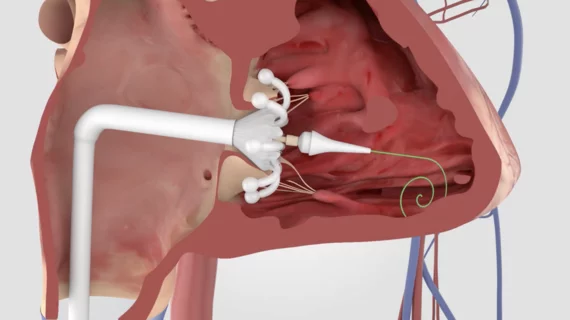Edwards shares new one-year data on transcatheter tricuspid valve replacement
Edwards Lifesciences Corporation has shared new one-year data on the safety and effectiveness of its Evoque transcatheter tricuspid valve replacement (TTVR) system among patients with tricuspid regurgitation (TR).
The findings, presented during a late-breaking clinical trial session at the PCR London Valves 2022 conference, focused on 176 patients enrolled in the first TRISCEND study. All patients presented with symptomatic moderate or greater functional or degenerative TR.
After one year, patient survival was 90.1% and freedom from heart failure hospitalization was 88.4%. Also, sustained TR reduction was seen in 97.6% of patients, and consistent increases were seen in Kansas City Cardiomyopathy Questionnaire scores.
“We are encouraged by the sustained safety and performance outcomes demonstrated by the Evoque system at one year, as it represents a meaningful therapy in our portfolio of transcatheter therapies being developed to help improve the quality-of-life for patients with tricuspid and mitral valve diseases,” Bernard J. Zovighian, Edwards' corporate vice president of transcatheter mitral and tricuspid therapies, said in a new prepared statement.
“Tricuspid regurgitation is prevalent, undertreated and has a significant impact on patients' quality of life,” added TRISCEND study co-primary investigator Didier Tchetche, MD, of Clinique Pasteur in France. “With most TR patients at high risk for surgery, there is a great need for an approved transcatheter valve replacement treatment option. The one-year results for patients who received the Evoque tricuspid valve replacement as part of the TRISCEND study provide important support for our confidence in this therapy as an option for patients who suffer from TR.”
The Evoque TTVR system is not commercially available at this time. The TRISCEND II clinical trial is currently underway to further examine the solution’s safety and effectiveness among patients presenting with TR.
Additional information on the PCR London Valves 2022 is available here. The conference runs until Nov. 29.

